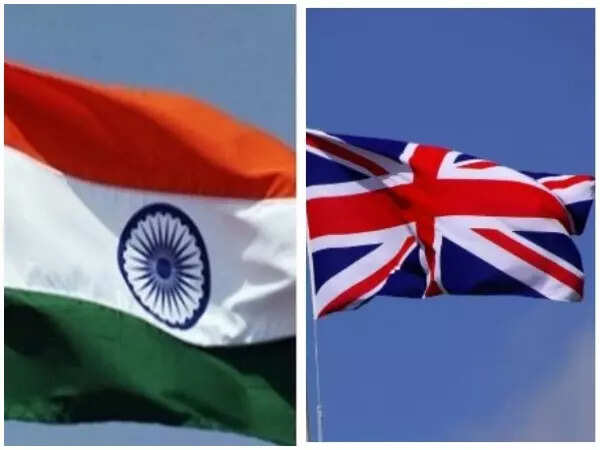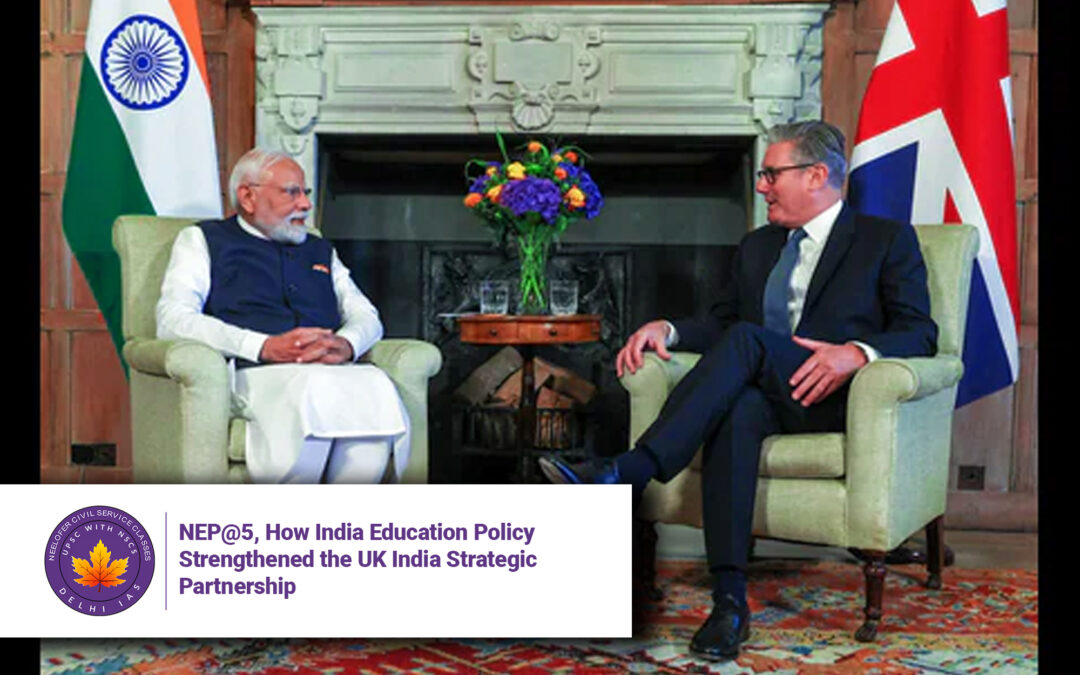NEP@5, How India Education Policy Strengthened the UK India Strategic Partnership
Why in News?
As the National Education Policy (NEP) 2020 marks its 5th anniversary, a significant milestone was celebrated in the form of enhanced UK-India educational cooperation. The NEP’s push for the internationalisation of higher education has not only transformed India’s academic landscape but also facilitated global partnerships—most notably, with the UK.
Introduction 
Launched in July 2020 by Prime Minister Narendra Modi, NEP 2020 envisioned making India a global knowledge superpower. By promoting international campuses, joint degrees, credit transfers, and cross-border research, the policy invited foreign institutions to set up branches in India.
This open policy framework has now enabled historic developments, including the University of Southampton becoming the first foreign university to open a comprehensive branch in India under University Grants Commission (UGC) regulations. The UK and India are now building on this progress to strengthen their Comprehensive Strategic Partnership through education, innovation, and skills collaboration.
Key Highlights of the UK-India Partnership under NEP
1. First UK University Campus in India
In July, the University of Southampton opened its first Indian campus in Gurugram, marking the beginning of foreign university operations in India. This move is seen as the materialisation of NEP’s internationalisation goals.
2. Student and Skills Mobility
NEP enables Indian students to access high-quality global education within India. British and Indian students also continue to travel between countries, enriching bilateral understanding and cultural exchange.
3. Youth Collaboration and Work Opportunities
The Young Professionals Scheme (YPS) allows young Indian and British graduates to live, study, and work in each other’s countries for up to two years, promoting skill exchange and real-world experience.
4. Joint Research and Innovation
UK campuses in India will partner with Indian research hubs and industries, strengthening innovation ecosystems. This aligns with both countries’ goals of promoting science, technology, and future-ready education.
5. Long-term Impact on “Viksit Bharat” Vision
Indian students will gain global exposure and skills needed for India’s fast-growing economy. These students will become pillars of India’s knowledge economy, helping achieve the goals of Viksit Bharat by 2047.
Conclusion
The NEP 2020 has become a powerful enabler of international education, as demonstrated by the deepening UK-India educational partnership. With thoughtful regulation and strategic vision, India is set to become a preferred global education hub. The collaboration reflects both countries’ commitment to nurturing the next generation of leaders, researchers, and innovators, and strengthening mutual ties through education and shared aspirations.
Q&A Section
Q1. What major educational development occurred under NEP 2020 recently?
A1. The University of Southampton became the first UK university to open a full-fledged campus in India, in Gurugram.
Q2. How does the Young Professionals Scheme benefit students?
A2. It allows young graduates from India and the UK to live, study, and work in each other’s countries for up to two years, encouraging cross-cultural and skill exchange.
Q3. Why is internationalisation important in NEP 2020?
A3. It helps bring world-class education to India, promotes joint research, enhances student mobility, and prepares Indian students for global opportunities.
Q4. What is the long-term vision linked with NEP and the UK-India partnership?
A4. The vision is to support Viksit Bharat 2047 by building a strong knowledge economy and globally competent workforce.
Q5. What roles do UK universities play in India’s education landscape now?
A5. UK universities contribute through campus setups, joint degrees, research partnerships, and skill-building initiatives aligned with India’s innovation goals.



